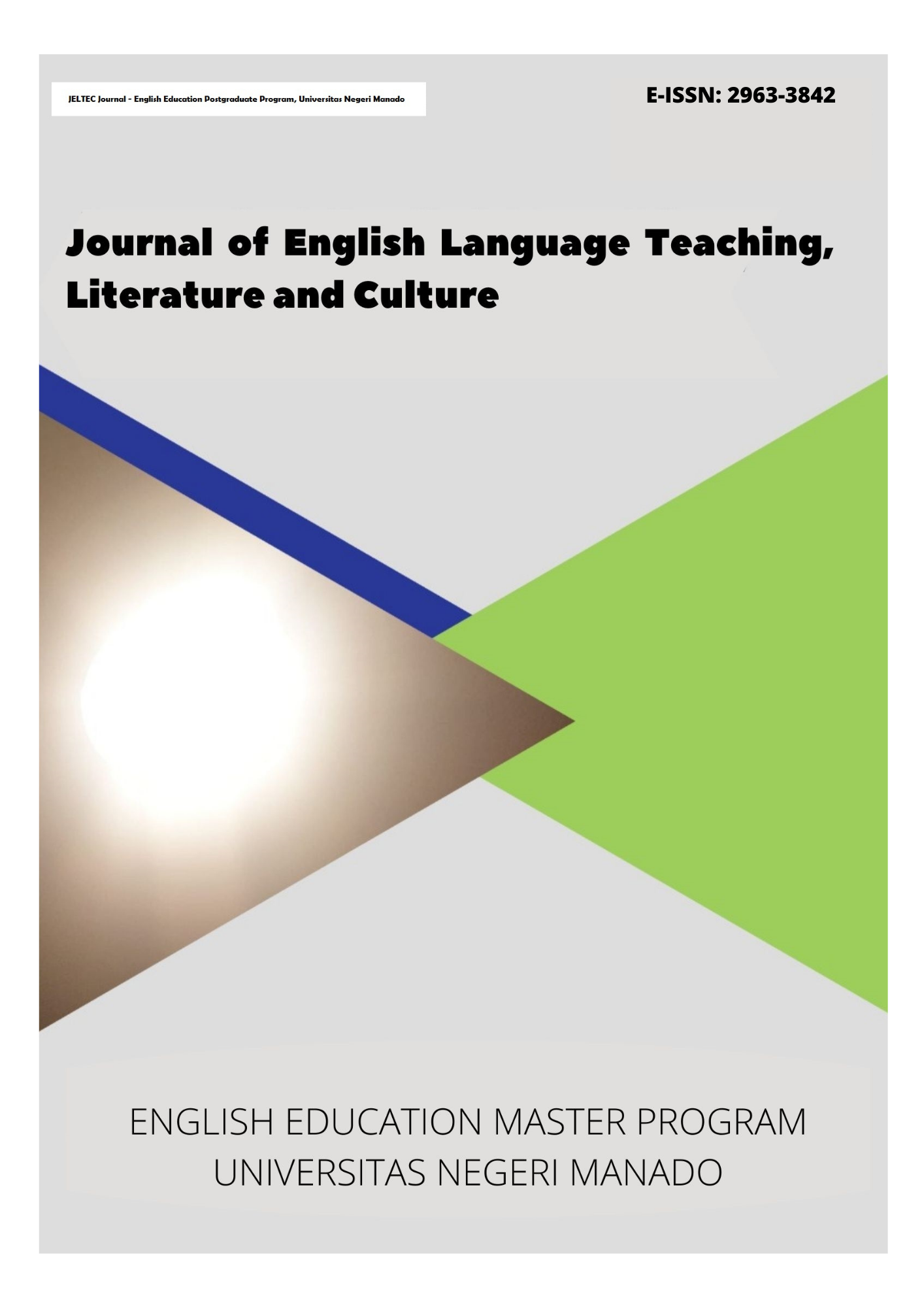Bitmoji Application and Young Learners Creativity in Learning English Vocabulary The Research conducted to 7th Grade Student of SMP Negeri 1 Kauditan
DOI:
https://doi.org/10.53682/jeltec.v2i1.6236Keywords:
Bitmoji Application, vocabulary, young learners, qualitative researchAbstract
For teaching and learning process today especially since the Covid 19 teachers rely more on technology as a medium or learning tool One of the main problems that arise in learning English as a foreign language or second language for the young learners is vocabulary Besides in the area of research English is taught in not all primary schools So it becomes hard for the students to learn English when they come to Junior High School The lack of vocabulary of the 7th < sup>grade student of SMP Negeri 1 Kauditan is the reason for the writer to raise vocabulary as a problem for the young learners that must be found a way out For this reason Bitmoji Application are used in this study to be used as interactive and interesting learning media for young learners so it is hoped that it will help them master vocabulary more quickly and easily In this study 30 students of 7th< sup> grade of SMP Negeri 1 Kauditan were the participants This is qualitative research and the results of this study are expected to help teachers in the classroom in teaching vocabulary < p>
References
Amirreza Karami 2019 Implementing Audio Visual Materials Videos as an Incidental Vocabulary Learning Strategy in Second Foreign Language Learners Vocabulary Development: a Current Review of the Most Recent Research Journal on English Language Teaching
Chih Cheng LIN 2011 EFL Students Perceptions of Learning Vocabulary in a Computer Supported Collaborative Environment Turkish Online Journal of Educational Technology TOJET
Chih Cheng Lin 2014 Earning English Vocabulary Collaboratively in a Technology Supported Classroom Turkish Online Journal of Educational Technology TOJET
Damar Isti Pratiwi et al 2021 Digital Vocabulary Class in English for Railway Mechanical Technology http: www tewtjournal org
Elham Mahmoudi Adlina bt Abdul Samad Noor Zainab Bt Abdul Razak 2012 Attitude and Students Performance in Computer Assisted English Language Learning CAELL for Learning Vocabulary Procedia Social and Behavioral Sciences
Elizabeth M Van Pate 2022 Evaluating the Use and Sustainability of Bitmoji Classrooms within Online Elementary Classrooms IUScholar Works
Fadi Maher Al Khasawneh 2012 Vocabulary Learning Strategies: a Case of Jordan University of Science and Technology English for Specific Purposes World
Feng Teng 2014 Strategies for teaching and learning vocabulary DOI: https: doi org 10 33508 bw v2i2 592
Kristen A Foltz et al 2020 Emoji Goes to Court: An Analysis of Emoji in Court Proceedings and Implications for Legal Practice Communication Law Review
Luu Trong Tuan 2011 An Empirical Research on Self learning Vocabulary Academy Publisher Manufactured in Finland
May Ali Abdul Ameer 2014 Improving Vocabulary Learning Through Digital Stories with Iraqi Young Learners of English at the Primary Level Journal of Studies in Social Sciences
Megan Clark 2013 The Use of Technology to Support Vocabulary Development of English Language Learners Fisher Digital Publication
M Rizky Setiawan et al 2020 The Effectiveness of Quizlet Application towards Students Motivation in Learning Vocabulary Siele Journal
Normandita Adventina Berliani et al 2021 The Art of Enhancing Vocabulary Through Technology Smart: Journal of English Language Teaching and Applied Linguistics
Ond ej Rambousek 2014 Learning vocabulary with technology Masaryk University Brno
Pengchong Zhang et al 2020 Learning Vocabulary Through Listening: The Role of Vocabulary Knowledge and Listening Proficiency https: doi org 10 1111 lang 12411
Robert Michael Easterbrook 2013 The process of vocabulary learning: Vocabulary learning strategies and beliefs about language and language learning researchprofiles canberra edu au
Rohmatillah 2014 A Study on Students Difficulties in Learning Vocabulary English Education: Jurnal Tadris Bahasa Inggris
Setiawati Dwi Riana 2012 Teaching Techniques used by the English Teacher in Teaching Third Grade Students of Raffles in International School Balikpapan University of Muhammadiyah Malang






